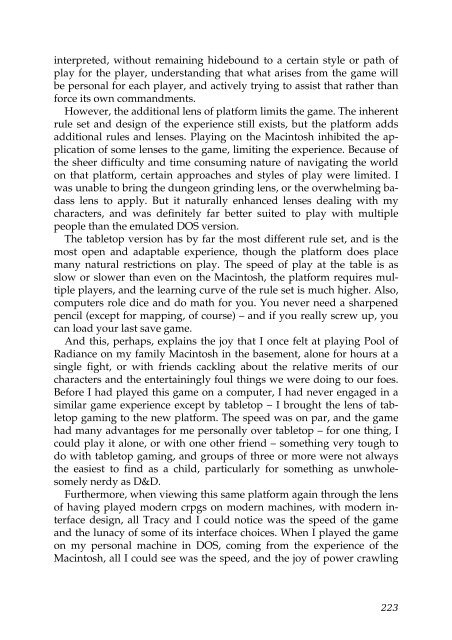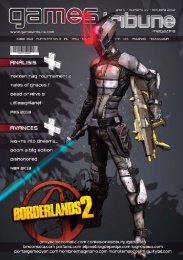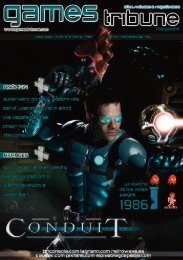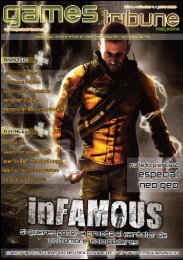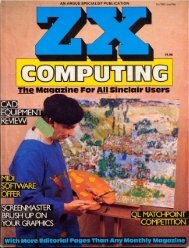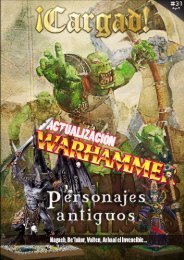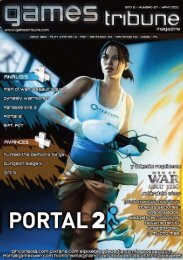Well Played 2.0: Video Games, Value and Meaning - OpenLibra
Well Played 2.0: Video Games, Value and Meaning - OpenLibra
Well Played 2.0: Video Games, Value and Meaning - OpenLibra
Create successful ePaper yourself
Turn your PDF publications into a flip-book with our unique Google optimized e-Paper software.
interpreted, without remaining hidebound to a certain style or path of<br />
play for the player, underst<strong>and</strong>ing that what arises from the game will<br />
be personal for each player, <strong>and</strong> actively trying to assist that rather than<br />
force its own comm<strong>and</strong>ments.<br />
However, the additional lens of platform limits the game. The inherent<br />
rule set <strong>and</strong> design of the experience still exists, but the platform adds<br />
additional rules <strong>and</strong> lenses. Playing on the Macintosh inhibited the application<br />
of some lenses to the game, limiting the experience. Because of<br />
the sheer difficulty <strong>and</strong> time consuming nature of navigating the world<br />
on that platform, certain approaches <strong>and</strong> styles of play were limited. I<br />
was unable to bring the dungeon grinding lens, or the overwhelming badass<br />
lens to apply. But it naturally enhanced lenses dealing with my<br />
characters, <strong>and</strong> was definitely far better suited to play with multiple<br />
people than the emulated DOS version.<br />
The tabletop version has by far the most different rule set, <strong>and</strong> is the<br />
most open <strong>and</strong> adaptable experience, though the platform does place<br />
many natural restrictions on play. The speed of play at the table is as<br />
slow or slower than even on the Macintosh, the platform requires multiple<br />
players, <strong>and</strong> the learning curve of the rule set is much higher. Also,<br />
computers role dice <strong>and</strong> do math for you. You never need a sharpened<br />
pencil (except for mapping, of course) – <strong>and</strong> if you really screw up, you<br />
can load your last save game.<br />
And this, perhaps, explains the joy that I once felt at playing Pool of<br />
Radiance on my family Macintosh in the basement, alone for hours at a<br />
single fight, or with friends cackling about the relative merits of our<br />
characters <strong>and</strong> the entertainingly foul things we were doing to our foes.<br />
Before I had played this game on a computer, I had never engaged in a<br />
similar game experience except by tabletop – I brought the lens of tabletop<br />
gaming to the new platform. The speed was on par, <strong>and</strong> the game<br />
had many advantages for me personally over tabletop – for one thing, I<br />
could play it alone, or with one other friend – something very tough to<br />
do with tabletop gaming, <strong>and</strong> groups of three or more were not always<br />
the easiest to find as a child, particularly for something as unwholesomely<br />
nerdy as D&D.<br />
Furthermore, when viewing this same platform again through the lens<br />
of having played modern crpgs on modern machines, with modern interface<br />
design, all Tracy <strong>and</strong> I could notice was the speed of the game<br />
<strong>and</strong> the lunacy of some of its interface choices. When I played the game<br />
on my personal machine in DOS, coming from the experience of the<br />
Macintosh, all I could see was the speed, <strong>and</strong> the joy of power crawling<br />
223


